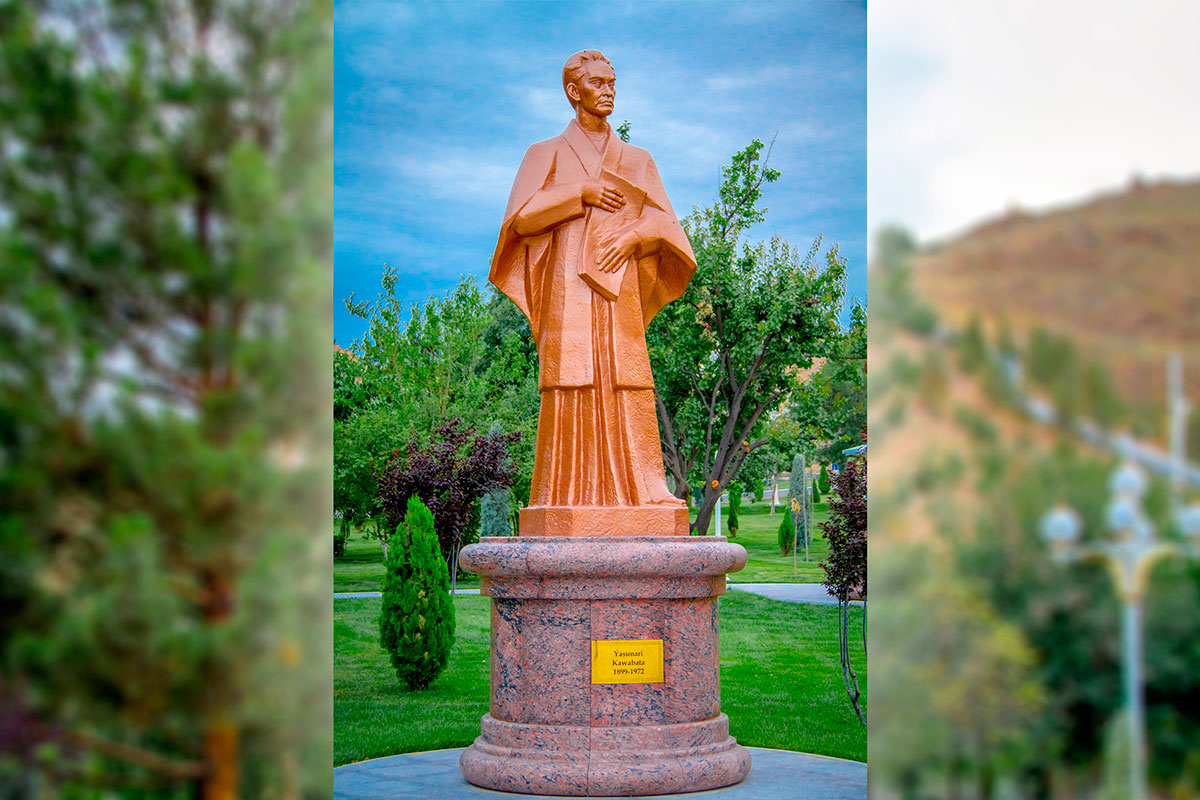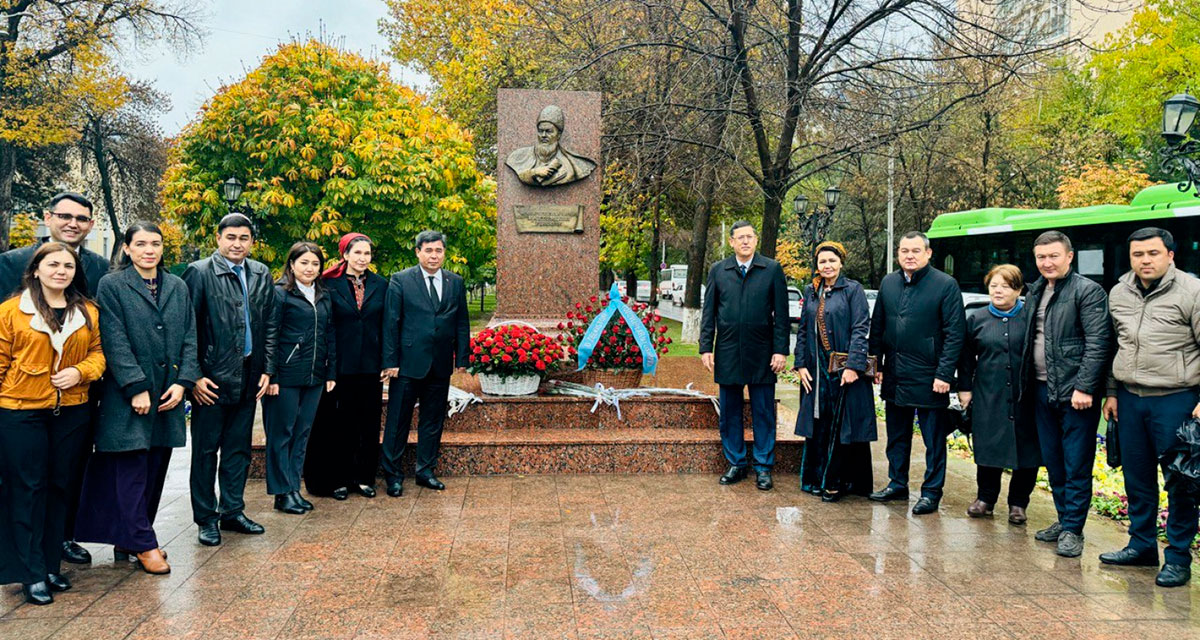This year, in a solemn ceremony to commemorate the 300th anniversary of the birth of the classic of Turkmen literature Makhtumkuli Fragi and in his honor, a new cultural and park complex of the capital was opened in the foothills of Kopetdag.
It is symbolic that this large-scale object, in addition to the majestic monument of Makhtumkuli, includes an alley of famous poets and thinkers from various countries and eras, which emphasizes its importance in the context of friendship of peoples and unity of the cultural heritage of mankind.
There are 24 monuments to world-famous writers and poets from around the world on the territory of the park complex.
The editorial board of the Golden Age considered it right, if possible, to acquaint the reader, especially children and youth, with the life and work of outstanding personalities whose monuments adorn Makhtumkuli Alley. This is also important because some of the geniuses of their time represented here have visited Turkmenistan. By publishing information about them, GA does not pretend in any way to provide complete coverage of materials about one or another personalities, especially since not much information has been preserved about many of them after a long period of time.
Our short story today is about the great poet and thinker, statesman, known all over the world for his artistic works of Alisher Navoi.
Alisher Navoi is a great poet and thinker, statesman. His full name is Nizamiddin Mir Alisher. He wrote poetry under the pseudonyms Navai as in works in the Chagatai language (in the Old Uzbek language), and in Farsi (in Persian works). Navoi is the ancestor of the literature of many Turkic the founder of the Uzbek national literary language. The work of this great poet, comparable only to geniuses It became the highest point of the development of Uzbek classical literature.
Alisher Navoi was born in 1441 in Herat. Historians still have its origin is controversial. From an early age Alisher had a great interest in poetry, and at the age of 15 he was already writing excellent poetry in two languages: Persian and his native old Uzbek language.
In 1466-1469, Alisher studied at the madrasah of Mashhad and Samarkand, where he studied philosophy, logic, mathematics and other sciences. After completing his education, the young man returned to Herat.
During his life, Navoi visits various countries of the Muslim East, meets with famous personalities of his era. He develops his poetic skills. In 1464-1465 , fans of Navoi's work prepared his first collection of poems (divan). This fact shows that by this time Navoi had already become famous as a poet.
The most famous work of Alisher Navoi was "Hamsa" - a collection consisting of five poems: "Confusion of the Righteous", "Leyli and Majnun", "Farhad and Shirin", "Seven Planets", "Iskander Wall".
All the works were written at different times and are devoted to different topics.
In 1490-1501, Navoi created the most lyrical, socio-philosophical and scientific works. In 1498, he completed the compilation of a collection of all his poems, and created four divan collections called "Hazain al-Mahoni" ("Treasury of thoughts"). All poems from this collection have a volume of more than 50,000 lines. At the same time, Navoi wrote poetry in 16 genres out of the existing 21 genres of literature of the Muslim East. Navoi was a very merciful person and practiced regularly charity work: he organized dinners for the poor, distributed clothes.
In addition, Navoi has many scientific and philosophical works that have been translated into many languages of the world. The most recent work of Navoi is "Mahbub al-kulub" (1500).
In his poems, Navoi praised such qualities as modesty, kindness, love for the Motherland, for people. All these values are values all over the world.
Alisher Navoi died in January 1501.
Being a man of high position, he made a significant contribution to the improvement of the socio-economic life of the country;
He patronized the development of science, art and literature; he always tried to establish peace and harmony. For centuries, his works have been the object of imitation and inspiration.
The literary heritage of Navoi that has come down to us is great and multifaceted. It includes about 30 collections of poems, poems, scientific works and poetic treatises. His work evokes so much
The interest of Orientalists is that a separate field of scientific research has appeared - military studies.
Navoi has taken a great place in the musical art of the Turkmen people. At Turkmen weddings, bakhshi often begin their music with chords of Navoi. The poem "Miraly and Soltanoyun", created by musicians of that time, is also a symbol of the deep love of the Turkmen people for Navoi. People also tell dozens of legends related to Navoi. The name of Alisher Navoi is assigned to the National Library and to the State Academic Bolshoi Theatre of Uzbekistan,
Tashkent State University of Uzbek Language and Literature, the Museum of Literature, the leading industrial center – the city of Navoi, the metro station, which is decorated with a bas -relief depicting the poet and a panel based on his famous "Hamsa". Monuments to Alisher Navoi have been erected in many cities around the world.








